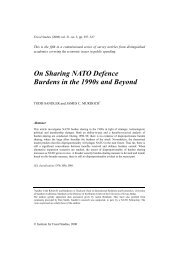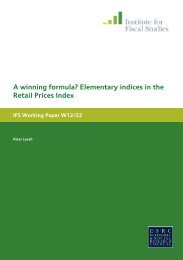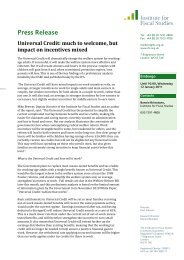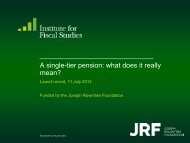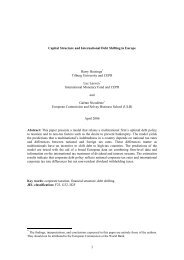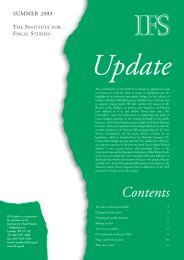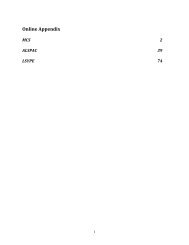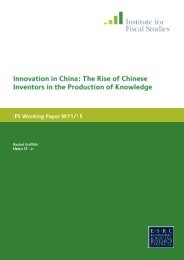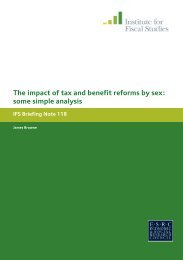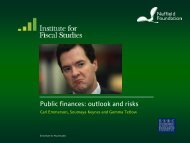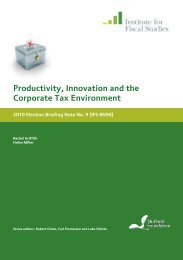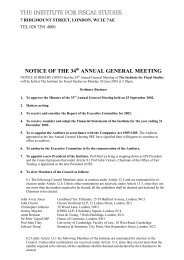A single-tier pension: what does it really mean? - The Institute For ...
A single-tier pension: what does it really mean? - The Institute For ...
A single-tier pension: what does it really mean? - The Institute For ...
You also want an ePaper? Increase the reach of your titles
YUMPU automatically turns print PDFs into web optimized ePapers that Google loves.
Wider implications<br />
the proposed <strong>single</strong>-<strong>tier</strong> reforms. To make up this defic<strong>it</strong>, they would need to save<br />
more privately for retirement. <strong>The</strong>se figures would be greater for a higher earner.<br />
Previous research suggests that individuals in the UK do change their private<br />
retirement saving behaviour in response to changes in state <strong>pension</strong><br />
ent<strong>it</strong>lements. 70 However, if the only effect of the policy were to reduce future<br />
state <strong>pension</strong> income, <strong>it</strong> is extremely unlikely that private saving would respond<br />
sufficiently to avoid future <strong>pension</strong>er incomes being lower than they would have<br />
been. Saving more for retirement <strong>mean</strong>s giving up some expend<strong>it</strong>ure today, and <strong>it</strong><br />
would be surprising if individuals chose to reduce spending today to a great<br />
enough extent to avoid any reduction in expected expend<strong>it</strong>ure during retirement.<br />
Instead, they are more likely to opt for a smaller cut in spending today and accept<br />
that this will result in a small cut in their future retirement resources.<br />
Reducing future <strong>pension</strong> income is not, however, the only effect of the proposed<br />
reforms. <strong>The</strong>y should also increase clar<strong>it</strong>y about how much individuals can<br />
expect to get from the state in retirement. Furthermore, by going some way to<br />
reducing future pressure on public spending, the latest reforms may also increase<br />
individuals’ certainty that there will not be further radical reforms to state<br />
<strong>pension</strong> ent<strong>it</strong>lements before they reach SPA.<br />
Greater clar<strong>it</strong>y could increase private retirement saving if e<strong>it</strong>her (i) <strong>it</strong> enables<br />
individuals to engage w<strong>it</strong>h decisions about <strong>pension</strong> saving who would otherwise<br />
have done nothing through inertia or (ii) <strong>it</strong> makes individuals more aware of how<br />
l<strong>it</strong>tle income they can expect to get from the state in retirement. Repeated<br />
reforms to state <strong>pension</strong>s make <strong>it</strong> hard for individuals to make appropriate, wellinformed<br />
decisions about how much to save privately for retirement. Greater<br />
certainty should ensure that individuals’ private saving decisions – <strong>what</strong>ever<br />
they may be – are ultimately more optimal, although this <strong>does</strong> not necessarily<br />
<strong>mean</strong> they will save more.<br />
70 Attanasio and Rohwedder, 2003.<br />
67



